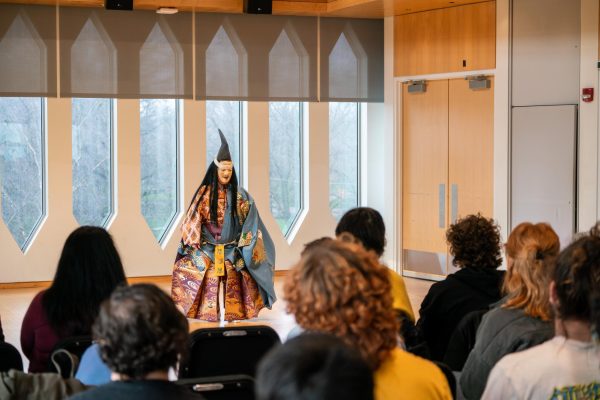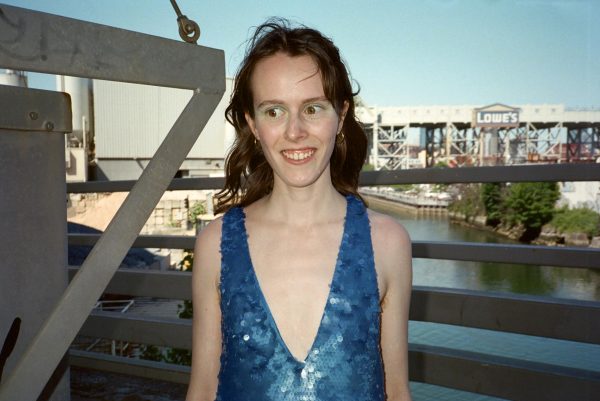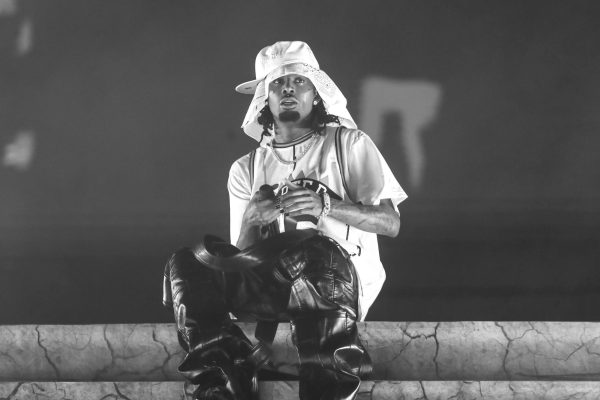“Black Panther” Shakes Foundations of Race, Gender Norms
The world was watching Wakanda last weekend as Black Panther opened in theaters across North America, as it should have been — Black Panther is a landmark film for America, and in many ways a pivotal expression of Blackness in film.
Some have posited Black Panther as a referendum on the financial and cultural salience of centering Blackness rather than relegating it to supporting roles. Appropriately released in the heat of Black History Month, the movie collected $241.9 million dollars in North American box office sales over the four-day President’s Day weekend. The movie’s success continues as it quickly approaches the $500 million mark globally.
Wakanda, where the film is set, is a fictional African nation possessing exceptional wealth, resources, and technology. The leaders of Wakanda, ultimately ruled by King T’Challa (Chadwick Boseman), hide those resources from the rest of the world, using a façade of despair and poverty as a tool to protect Wakanda from colonialist pillaging.
This is only one example of the strong and creative social commentary brought to life by the director, Ryan Coogler (Fruitvale Station, Creed). The film reconstructs generations of Black Nationalist theory through Killmonger (Michael B. Jordan) and T’Challa, challenging previous notions of what superhero films can address. At multiple points in the story, the CIA defeats itself by assuming that Wakanda is what it purports to be: a poor, struggling nation. American imperialism fails due to its own racism.
T’Challa becomes king of Wakanda when his father, King T’Chaka (John Kani), is killed. But the king’s crown comes hand in hand with the mantle of the Black Panther — an ancient power granting the strength of the panther and the goddess Bast to the ruler of Wakanda. Boseman portrays T’Challa as a thoughtful, quiet, patient, and smart character. T’Challa’s central problem in the film is deciding whether to carry on Wakanda’s isolationist traditions or to contribute to the outside world and help the needy beyond its borders, particularly non-Wakandan Black people.
Jordan’s turn as Killmonger merits considerable praise as well. Typically, a Marvel film villain is some variation on a megalomaniacal man who wants to destroy the world. Black Panther breaks this pattern by giving us a villain whose motives are more grounded, relatable, and emotionally wrought. The character is also more nuanced than most Marvel villains; Jordan’s incredible performance brings humanity to a tragic role and makes the audience aware of his struggle, grief, and fury through a well-structured development of the character.
Not only has Black Panther achieved its purpose of being a film in which Black people can see themselves as they want to be seen, it is also 10 times the feminist that movie Wonder Woman was. The women in Black Panther are regal, dynamic, central, and Black. In an industry where women, especially Black women, are almost always given subservient roles, it was refreshing to watch the the female characters of this film flourish. Danai Gurira (The Walking Dead) is spectacular as Okoye, the head of Wakanda’s Dora Milaje, an all-female kingsguard. Lupita Nyong’o (Twelve Years A Slave, Star Wars: The Force Awakens) plays Nakia, a dynamic and impressive fighter (and T’Challa’s love interest), and Letitia Wright (Black Mirror) steals the spotlight as T’Challa’s sarcastic, tech-genius sister, Shuri. Seeing Black women as both intellectually and physically powerful role models is novel, exciting, and long overdue.
Black Panther embraces African culture head-on. At no point did the creators decide to water down any aspect of the culture they were depicting to make it more “suitable” for white audiences. Wakanda is shown to be advanced not because it has imitated the West, but rather because it has fully embraced its Africanness. The costumes, landscapes, humor, and characters are all wonderfully, unapologetically Black.
If it sounds as though I’m making this film about race, it’s because I am. In short, the film was Blackity Black Black. From featuring prominent Black artists on its soundtrack such as Kendrick Lamar, SZA, and The Weeknd, to rolling out a purple carpet at its premiere, Black Panther stands as a landmark staple of Black culture, a home run for Marvel, and a film worthy of global recognition.






